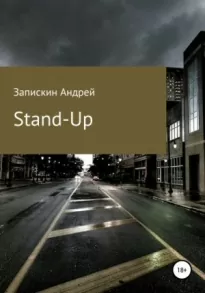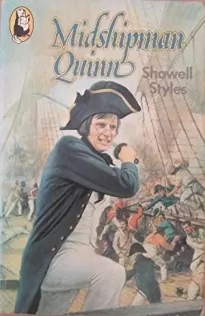RED SYMPHONY

- Автор: Dr. Landowsky
- Жанр: Старинная литература
Читать книгу "RED SYMPHONY"
G. - In accordance with the picture which was given of the Russia of 1917 one had to be a very naive person to believe all this ...
{p. 30} R. - They were and are such. Masons had learned nothing from that first lesson which, for them, had been the Great Revolution, in which they played a colossal revolutionary role; it consumed the majority of masons, beginning with the Grand Master of the Orleans Lodge, more correctly the freemason Louis XVI, in order then to continue to destroy the Girondistes, the Hebertistes, the Jacoboins etc..... and if some survived it was due to the month of Brumaire.
G. - Do you want to say that the freemasons have to die at the hands of the revolution which has been brought about with their co-operation?
R. - Exactly so. You have formulated a truth which is veiled by a great secret. I am a mason, you already knew about that. Is that not so? Well, I shall tell you this great secret, which they promise to disclose to a mason in one of the higher degrees, but which is not disclosed to him either in the 25th, nor the 33rd, nor the 93rd, nor any other high level of any ritual. It is clear that I know of this not as a freemason, but as one who belongs to "Them" ...
G. - And what is it?
R. - Every masonic organization tries to attain and to create all the required prerequisites for the triumph of the Communist revolution; this is the obvious aim of freemasonry; it is clear that all this is done under various pretexts; but they always conceal themselves behind their well-known treble slogan. (Liberty, Equality, Fraternity - Transl.) You understand? But since the Communist revolution has in mind the liquidation, as a class, of the whole bourgeoisie, the physical destruction of all bourgeois political rulers, it follows that the real secret of masonry is the suicide of freemasonry as an organization, and the physical suicide of every more important mason. You can, of course, understand that such an end, which is being prepared for every mason, fully deserves the secrecy, decorativeness and the inclusion of yet another whoie series of secrets, with a view to concealing the real one. If one day you were to be present at some future revolution then do not miss the opportunity of observing the gestures of surprise and the expression of stupidity on the face of some freemason at the moment when he realises that he must die at the hands of the revolutionaries. How he screams and wants that one should value his services to the revolution! It is a sight at which one can die ... but of laughter.
G. - And you still deny the inborn stupidity of the bourgeoisie?
R. - I deny it in the bourgeoisie as a class, but not in certain sectors. The existence of madhouses does not prove universal madness. Freemasonry is also a madhouse, but at liberty. But I continue further: the revolution has been victorious, the seizure of power has been achieved. There arises the first problem, peace, and with it the first differences within the party, in which there participate the forces of the coalition, which takes advantage of power. I shall not explain to you that which is well known about the struggle which developed in Moscow between the adherents and opponents of the peace of Brest-Litovsk. I shall only point out to you that which had already become evident then and was later called the Trotzkyist opposition, i.e. these are the people, a part of whom have already been liquidated and the other part is to be liquidated: they were all against the signing of the peace treaty. That peace was a mistake and an unconscious betrayal by Lenin of the
{p. 31} International Revolution. Imagine to yourself the Bolsheviks in Versailles at the Peace Conference, and then in the League of Nations, finding themselves inside Germany with the Red Army, which had been armed and increased by the Allies. The Soviet State should have participated with arms in the German revolution ... Quite another map of Europe would then have emerged. But Lenin, intoxicated with power, with the help of Stalin, who had also tasted the fruits of power supported by the national Russian wing of the party, having at their disposal the material recources, enforced their will. Then was born "Socialism in one country," i.e. National-Communism, which has to-day reached its apogee under Stalin. It is obvious that there was a struggle, but only in such a form and extent that the Communist State should not be destroyed; this condition was binding on the opposition during the whole time of its further struggle right up to the present day. This was the reason for our first failure and all those which followed. But the fight was severe, cruel, although concealed in order not to compromise our participation in power. Trotzky organized, with the help of his friends, the attempt on Lenin's life by Kaplan. On his orders Blumkin killed the ambassador Mirbach. The coup d'etat which was prepared by Spiridonova with her social-revolutionaries had been co-ordinated with Trotzky. His man for all these affairs, who was immune from all suspicions, was that Rosenblum, a Lithuanian Jew, who used the name of O'Reilly, and was known as the best spy of the British Intelligence. In fact he was a man from "Them." The reason why this famous Rosenblum was chosen, who was known only as a British spy, was that in case of failure the responsibility for assassinations and conspiracies would fall not on Trotzky, and not on us, but on England. So it happened. Thanks to the Civil War we rejected conspiratorial and terrorist methods as we were given the chance of having in our hands the real forces of the State, insofar as Trotzky became the organizer and chief of the Soviet Army; before that the army had continuously retreated before the Whites and the territory of the USSR was reduced to the size of the former Moscow Principality. But here, as if by magic, it begins to win. What do you think, why? As the result of magic or chance? I shall tell you: when Trotzky took over the top command of the Red Army then he had by this in his hands the forces necessary to seize power. A series of victories was to increase his prestige and forces: it was already possible to defeat the Whites. Do you think that that official history was true which ascribes to the unarmed and ill-disciplined Red Army the fact that with its help there was achieved a series of victories?
G. - But to whom then?
R. - To the extent of ninety per cent they were indebted to "Them." You must not forget that the Whites were, in their way, democratic. The Mensheviks were with them and the remnants of all the old Liberal parties. Inside these forces "They" always had in their service many people, consciously and unconsciously. When Trotzky began to command then these people were ordered systematically to betray the Whites and at the same time they were promised participation, in a more or less short time, in the Soviet Government. Maisky was one of those people, one of the few in the case of which this promise was carried out, but he was able to achieve this only after Stalin had become convinced of his loyalty. This sabotage, linked with a progressive diminution of the help of the Allies to the White generals, who apart from all that
{p. 32} were luckless idiots, forced them to experience defeat after defeat. Finally Wilson introduced in his famous 14 Points Point 6, * {see footnote below} the existence of which was enough in order to bring to an end once and for all the attempts of the Whites to fight against the USSR. The Civil War strengthens the position of Trotzky as the heir of Lenin. So it was without any doubt. The old revolutionary could now die, having acquired fame. If he remained alive after the bullet of Kaplan, he did not emerge alive after the secret process of the forcible ending of his life, to which he was subjected.
f. - Trotsky shortened his life? This is a big favourable point for our trial! Was it not Levin who was Lenin's doctor?
R. - Trotzky? ... It is probable that he participated, but it is quite certain that he knew about it. But as far as the technical realization is concerned ..., that is unimportant; who knows this? "They" have a sufficient number of channels in order to penetrate to wherever they want.
G. - In any event the murder of Lenin is a matter of the greatest importance and it would be worth while to transfer it for examination to the next trial ... What do you think, Rakovsky, if you were by chance to be the author of this affair? It is clear that if you fail to achieve success in this conversation ... The technical execution suits you well as a doctor ...
R. - I do not recommend this to you. Leave this matter alone, it is sufficiently dangerous for Stalin himself. You will be able to spread your propaganda as you wish: but "They" have their propaganda which is more powerful and the question as to
G. - What do you want to say by this?
R. - That it is the classical and infallible rule in the determination of who the murderer is to check who gained ..., and as far as the assassination of Lenin is concerned, in this case the beneficiary was his chief - Stalin. Think about this and I very much ask you not to make these remarks, as they distract me and do not make it possible for me to finish.
G. - Very well, continue, but you already know ...
R. - It is well known that if Trotzky did not inherit from Lenin then it was not because by human calculations there was something missing in the plan. During Lenin's illness Trotzky held in his hands all the threads of power, which were more than sufficient to enable him to succeed Lenin. And measures had been taken to declare a sentence of
* {footnote} Wilson's Point 6 read: "The evacuation of all Russian territory, and such a settlement of all questions affecting Russia as will secure the best and freest co-operation of the other nations of the world in obtaining for her an unhampered and unembarrassed opportunity for the independent determination of her own poliical development and national policy, and assure her of a sincere welcome into the society of free nations under institutions of her own choosing, and more than a welcome, assistance also of every kind that she may need and may herself desire. The treatment accorded Russia by her sister nations in the months to come will be the acid test of their good will, of heir comprehension of her needs as distinguished from their own interests, and of their intelligent and unselfish symoathy." - Transl. {end footnote}
{p. 33} death on Stalin. For Trotzky the dictator it was enough to have in his hands the letter of Lenin against his then chief - Stalin, which had been torn from her husband by Krupskaya, to liquidate Stalin.* But a stupid mischance, as you know, ruined all our chances. Trotzky became ill unexpectedly and at the decisive moment, when Lenin dies, he becomes incapable of any action during a period of several months. Despite his possession of enormous advantages, the obstacle was our organization of the affair, i.e. its personal centralization. It is obvious that such a person as Trotzky, prepared in advance for his mission, which he was to realise, cannot be created at once, by improvisation. None among us, not even Zinoviev, had the requisite training and qualities for this undertaking; on the other hand Trotzky, being afraid of being displaced, did not himself want to help anybody. Thus, after the death of Lenin, when we had to be face to face with Stalin, who commenced a feverish activity, we foresaw then already our defeat in the Central Committee. We had to improvise a decision: and it was to ally ourselves with Stalin, to become Stalinists more than he himself, to exaggerate in everything and, therefore, to sabotage. The rest you know already: that was our uninterrupted subterranean struggle and our continuous failure to Stalin's advantage, while he displays police talents of genius, having absolutely no equals in the past. And even more: Stalin, possessing national atavism, which had not been uprooted in him by his early Marxism, apparently for that reason underlines his pan-Russianism, and in this connexion resurrects a class which we had to destroy, that is the class of National-Communists, as opposed to the Internationalist-Communists, which we are. He places the International at the service of the USSR and it already accepts his mastery. If we want to find an historical parallel, then we must point to bonapartism, and if we want to find a person of Stalin's type, then we shall not find an historical parallel for him. But perhaps I shall be able to find it in its basic characteristics by combining two people: Fouche and Napoleon. Let us try to deprive the latter of his second half, his accessories, uniforms, military rank, crown and such like things, which, it seems, do not tempt Stalin, and then together they will give us a type identical with Stalin in the most important respects: he is the killer of the revolution, he does not serve it, but makes use of its services; he represents the most ancient Russian Imperialism, just as Napoleon identified himself with the Gauls, he created an aristocracy, even if not a military one, one, since there are no victories, then a bureacratically-police one.
G. - That is enough. Rakovsky. You are not here to make Trotzkyist propaganda. Will you at last get to something concrete?
R. - It is clear that I shall, but not before I had reached the point at which you will have formulated for yourself an at least superficial conception concerning "Them," with whom you will have to reckon in practice and in concrete actuality. Not sooner. For me it is far more important than for you not to fail, which you must, naturally, understand.
G. - Well, try to shorten the story as far as possible.
R. - Our failures, which get worse every year, prevent the immediate carrying out of that which "They" have prepared in the after-war period for the further leap of the revolution forward. The Versailles Treaty,
* {footnote} It will be observed that twice Rakovsky states that Stalin had been Lenin's chief; this may be a misunderstanding - Transl. {end footnote}
{p. 34} quite inexplicable for the politicians and economists of all nations, insofar as nobody could guess its projection, was the most decisive precondition for the revolution.
G. - This is a very curious theory. How do you explain it?
R. - The Versailles reparations and economic limitations were not determined by the advantages of individual nations. Their arithmetical absurdity was so obvious that even the most outstanding economists of the victorious countries soon exposed this. France alone demanded as reparations a great deal more than the cost of all her national possessions, more than one would have had to pay if the whole of France had been converted into a Sahara; even worse was the decision to impose on Germany payment obligations which were many times greater that it could pay, even if it had sold itself fully and given over the whole of its national production. In the end the true result was that in practice Germany was forced to carry out a phantastic dumping so that it could pay something on account of reparations. And of what did the dumping consist? An insufficiency of consumer goods, hunger in Germany and in corresponding measure unemployment in the importing countries. And since they could not import there was also unemployment in Germany. Hunger and unemployment on both sides; all this were the first results of Versailles ... Was this treaty revolutionary or not? Even more was done: one undertook an equal control in the international plane. Do you know what that undertaking represents in the revolutionary plane? It means to impose an anarchical absurdity to force every national economy to produce in sufficient volume all that it needs, while assuming that to attain that one does not have to take account of climate, natural riches and also the technical education of directors and workers. The means for compensation for inborn inequalities of soil, climate, availability of minerals, oil, etc., etc. in various national economies, were always the circumstance that poor countries had to work more. This means that they had to exploit more deeply the capacities of the working force in order to lessen the difference which arises from the poverty of the soil; and to this are added a number of other inequalities which had to be compensated by similar measures, let us take the example of industrial equipment. I shall not expand the problem further, but the control of the working day carried through by the League of Nations on the basis of an abstract principle of the equality of the working day, was a reality in the context of an unchanged International Capitalist system of production and exchange and established economic inequality, since here we had to deal with an indifference to the aim of work, which is a sufficient production. The immediate result of this was an insufficiency of production, compensated by imports from countries with a sufficient natural economy and an industrial self-sufficiency: insofar as Europe had gold, that import was paid by gold. Then came the apparent boom in America which exchanged its immense production for gold and gold certificates, of which there was plenty. On the model of any anarchy of production there appeared at that period an unheard-of financial anarchy. "They" took advantage of it on the pretext of helping it with thr aid of another and still greater anarchy: the inflation of the official money (cash) and the a hundred times greater inflation of their own mony, credit money, i.e. false money. Remember how systematically there came devaluation in many countries; the destruction of the value of money in Germany, the American crisis and its pheno-
{p. 35} mental consequences ..., a record unemployment; more than thirty million unemployed in Europe and USA alone. Well, did not the Versailles Peace Treaty and its League of Nations serve as a revolutionary pre-condition?





